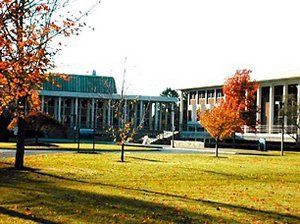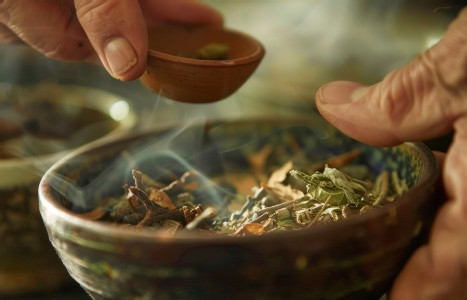Pelvic pain has a prevalence of >25% in women and >15% in men, and up to 50% of cases are undiagnosed, demonstrating that there is a definite need for pelvic care awareness among health care practitioners. As holistic practitioners, acupuncturists offer a safe space for clients and are often the practitioners clients seek out when nothing else has worked. Thus, acupuncturists are presented with an opportunity to serve an underserved population.
An Interview with Marilee Murphy, BS, LAc, RN
There is exciting news in upstate New York - and surprisingly, it has nothing to do with college basketball or the weather. A new, leading-edge acupuncture program has been established at one of the oldest chiropractic schools in the country. The New York Chiropractic College (NYCC), founded in 1919, has broadened its educational mission by adding professional master's level training programs in acupuncture and Oriental medicine, in addition to a bachelor of professional studies degree, with a major in life sciences. The first group of students will begin their classes in September. To lead the program, the school has named Marilee Murphy, BS, LAc, RN, dean of acupuncture and Oriental medicine.
Ms. Murphy brings over 15 years of extensive integrative medicine experience to the college, supplemented by her background in nutrition, nursing and Oriental medicine. She earned BS degrees in nutritional science from Cornell University and nursing from Binghamton University, and graduated from the Florida Institute of Traditional Chinese Medicine. She also completed a postgraduate course in Chinese herbology from Tri-State College of Acupuncture. Early in her acupuncture career, she specialized in addiction treatment at the Miami Metro-Dade Drug Detoxification Program; during that time, she served as the lead acupuncturist on the first extensively funded acupuncture research project by the National Institute for Drug Abuse. Dean Murphy also served five years on the board of directors of the National Certification Commission for Acupuncture and Oriental Medicine (NCCAOM), including a stint as board chair. In addition to maintaining a private practice since 1988, her background includes work as a nutritional educator and hospital nurse.
Recently, I spoke with Dean Murphy about the acupuncture program at NYCC. My interview with her follows below.
Jennifer Waters (JW): This seems to be a very unique school.
Marilee Murphy (MM): It really is. We have an extensive facility available to us. The campus is 286 acres, and has extensive clinical and research facilities; a modern multimedia library; a huge athletic compound (including a nine-hole golf course); administrative and academic buildings; and many residence halls. The students make use of state-of-the-art technology and equipment in the classrooms; advanced, hands-on anatomy and other science labs; technique laboratories; and X-ray facilities. In addition, if students fall behind, need evaluation or want to see what their learning style is (or want to maximize their learning style), we have a center and staff dedicated to supporting them. We also have a career development center dedicated to supporting students and alumni with placement and postgraduate concerns.

NYCC has been quite active in on-campus research for chiropractic, and we plan to extend that research for acupuncture. We are putting in grant proposals to the National Institutes of Health for acupuncture and chiropractic research. There also is a possibility of conducting research jointly with Strong Memorial Hospital in Rochester.
JW: What's the student clinic like?
MM: We have a student health center that contains 25 treatment rooms, which allows students to begin their clinical experience. The patients seen at the center include our student body of about 700, along with about 200 faculty and staff. This clinic sees a tremendous number of patients.
In addition, the college opened an Integrative Health Center on campus this June to serve the community, with a physician; a physician assistant; a massage therapist; a chiropractor; and an acupuncturist. It will serve as an internship site for students.
One of the goals of our program is to create a graduate who is comfortable in any treatment environment, whether that environment is a hospital, private practice or integrated medicine clinic. Among the hospitals we are working with, Clifton Springs Hospital, with whom we have a strong relationship, already has an integrated health department. We are aiming to offer a mix of clinical internships with varied populations.
JW: What has been the response from prospective students?
MM: It's been incredible! We received approval from the New York State Department of Education in January, and I only came on full-time a few months ago. I was a little nervous, because there was such a short time frame to get a class together for September, but I am thrilled with the response. We expect an incoming class of 45, which is perfect. Among those in the program, we've accepted an attorney; several physical therapists; nurses; a physician assistant; a midwife; and doctors of chiropractic who have practiced for 20 years and are coming back to learn more.
JW: Is there an option to live on campus?
MM: Yes. We currently have many unused dorms, which will be available to us in the future.
JW: Tell us a little bit about the Oriental medicine program.
MM: Because we are so close to Ithaca, and have a relationship with the founder of an herbal supply company, students will have an opportunity to work with them. We plan to offer students exposure to the entire Chinese medicinal distribution business, as well as observation and assistant opportunities to see how an herbal pharmacy works with granules and concentrates. All of the herbs are brought in from China, and are formulated, weighed and measured by the herbal supplier. We would also like to open student clinics in Ithaca, Syracuse and Rochester.
JW: Will the core curriculum be based on traditional Chinese medicine?
MM: We will follow a core TCM curriculum, but we are also going to expose students to other styles. We will offer electives in Five Element and Japanese styles, along with other approaches. Jason Wright has done postgraduate course work in Japanese-style acupuncture. It's important to offer diversity.
JW: Tell us about the new faculty for the program.
MM: I was shocked at the number of resumes and the various experiences the professional community offered us. We've hired two full-time faculty who will teach the core curriculum classes. The rest of the teachers will remain adjunct. When you're starting a new school with a small class, you expose them to as many faculty as possible. Both of our full-time faculty have taught at other schools: Jason Wright was at the Seattle Institute of Oriental Medicine and Bastyr University, and Darlene Easton was at the New York College of Health Professions in Syosset. In addition, an instructor who taught at the Nanjing Traditional Chinese Medicine University will teach our herbal courses.
JW: The state regulations in New York tend to lean more towards the biosciences. Is there a fear of losing the integrity of a TCM program?
MM: There's no fear. I'm absolutely committed to maintaining the integrity of the TCM program. The curriculum is heavy on anatomy, and we have advanced facilities available to us, but we're balancing TCM with the biosciences. An acupuncturist must lead this program to insure the integrity of the TCM curriculum.
What I love is having the opportunity for students to start collaborations and having the exposure and comfort of learning about chiropractic here, because when they go out (into practice), they are much more likely to be in a referral-type relationship with practitioners in those modalities. I have had great collaborative relationships with chiropractors, and it can really enhance the practice. A real advantage with our students is that they intermingle with each other, so they can really understand each other better.
JW: What are some of the challenges we are facing in TCM education today?
MM: Personally, I'd like to see our profession move in the direction of keeping the master's level where it is, and also having an advanced level doctorate degree. Specialization can occur at a doctorate level. The core training at the master's level is enough for entry-level training. We've got two different mindsets happening within the profession concerning where it needs to go, and it's hard to reconcile. I hope that the dialogue and communication between all parties continues to be effective.
My impression is that the profession has mastered the balance between acupuncture training and the bioscience requirements. Also, I would love to see standardization become more consistent from state to state, in terms of licensure. It's important not to confuse the consumer, but right now, the consumer is confused. Often, people wonder what all the different titles we have - LAc, MAc, DOM, etc. - mean.
JW: Thank you.



